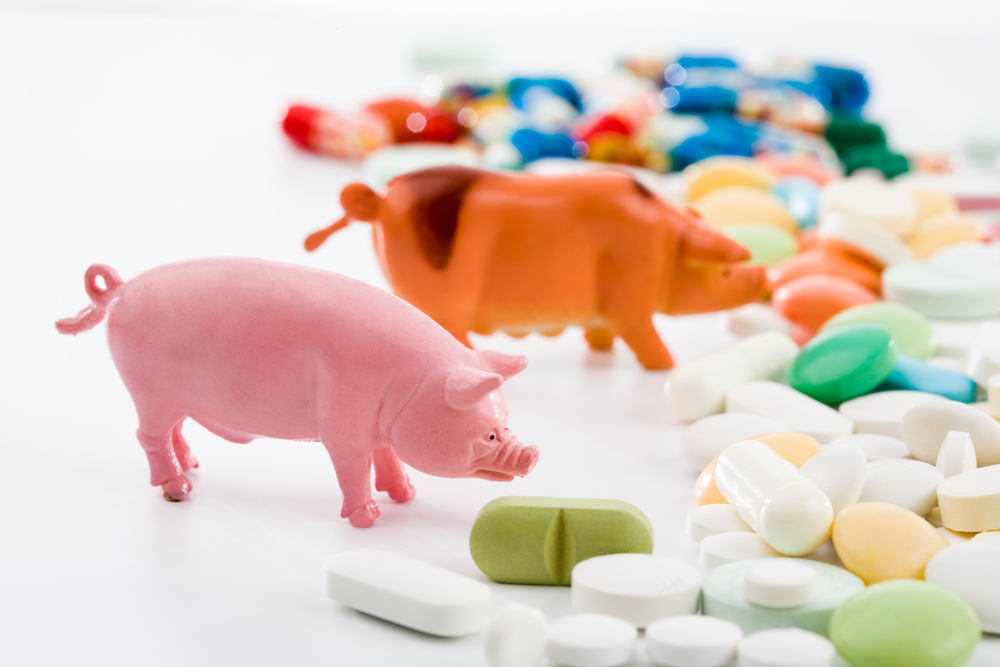HIGIA PECORIS, SALUS POPULI
This Latin sentence, which means “livestock hygiene is the people’s health”, appears at every Veterinary profession emblem in Spain. The sentence speaks for itself.
In previous articles, we have written about the importance of Veterinary profession in the task of keeping people healthy: Vets inspect sanitary conditions of restaurants, markets, and food manufacturers. They also control the standards of quality of the food we buy at supermarkets or any other place.
Of course Vets are the people who watch over animal health and welfare (including pets and livestock).
 This time we would like to insist in a kind of responsibility which is even bigger than taking care of people or animals: the environment. Both Vets and pet owners have the responsibility of making a proper utilization of medicines.
This time we would like to insist in a kind of responsibility which is even bigger than taking care of people or animals: the environment. Both Vets and pet owners have the responsibility of making a proper utilization of medicines.
There are lots of environmentally dangerous residues in most susbstances we use daily, such as antiparasitic medicines, medical shampoos, antibiotics, hormones… All of them must be used carefully, and the remains of medicines must be taken to the chemist for their correct disposal.
The Vet’s responsibility consists of prescribing just the absolutely necessary quantity of medicines for every case, not to overmedicalize, and to provide information about the risks.
The owner’s responsibility consists on following carefully the Vet’s instructions, not to self-medicate (which means, in case of Veterinary medicine, not to give an animal any medicine without asking a Vet first), and not to buy medicines from unauthorized places.
We see sometimes cases of animals that have been previously medicated with antibiotics by breeders or animal shelters without any kind of Veterinary control, or animals that are having medicines which have been purchased without Veterinary prescription at pet shops or the Internet; this is specially common in companion birds: most of them have antibiotics in their drinking water for any excuse. Most of these medicines are available at pet shops or similar places and are just bought and added to food or water without any kind of control.
Nowadays, the biggest problem is not damaging the health of one animal, but the improper disposal of the medicine, specially if it is an antibiotic.
Where do those remains go if we just throw them to the dustbin or down the WC? They go, via water, to the ground. From the ground they are absorbed by the roots of the vegetables we eat. So, there we have vegetables enriched in antibiotics. We all know antibiotics create bacterial resistance. What we have now is “super clever” bacteria which learned through a real Darwinian selection how to defeat antibiotics. So, what are we going to do in 20 years, when antibiotics won’t work any more?
Since the 80’s no more new antibiotics are been developed (despite some new formulations are available).
If medicines (specially antibiotics), are used without any kind of control, the will become useless in the best case scenario. The levels of hormones or hormone-like substances at the milk of lactating women and children blood are alarming.
Anything we leave at the environment will remain there, and sooner or later it will get accumulated in the plants we are going to eat, in a direct or non direct way (through the meat of the animals that have eaten those contaminated plants).
Here is a link with additional info:
So, please, use antibiotics only when they are absolutely necessary, and only when prescribed by a professional.
Finally we would like to remind cats owners that, from March 2016, rabies injection is mandatory in cats, even if they are not going to travel abroad.
Liliana Aldeguer Cerdán col 793
English translation by Sergio Reina Esteban col 747
Clinica Veterinaria
Gran Alacant Exotics
Tel: 966 698 569



